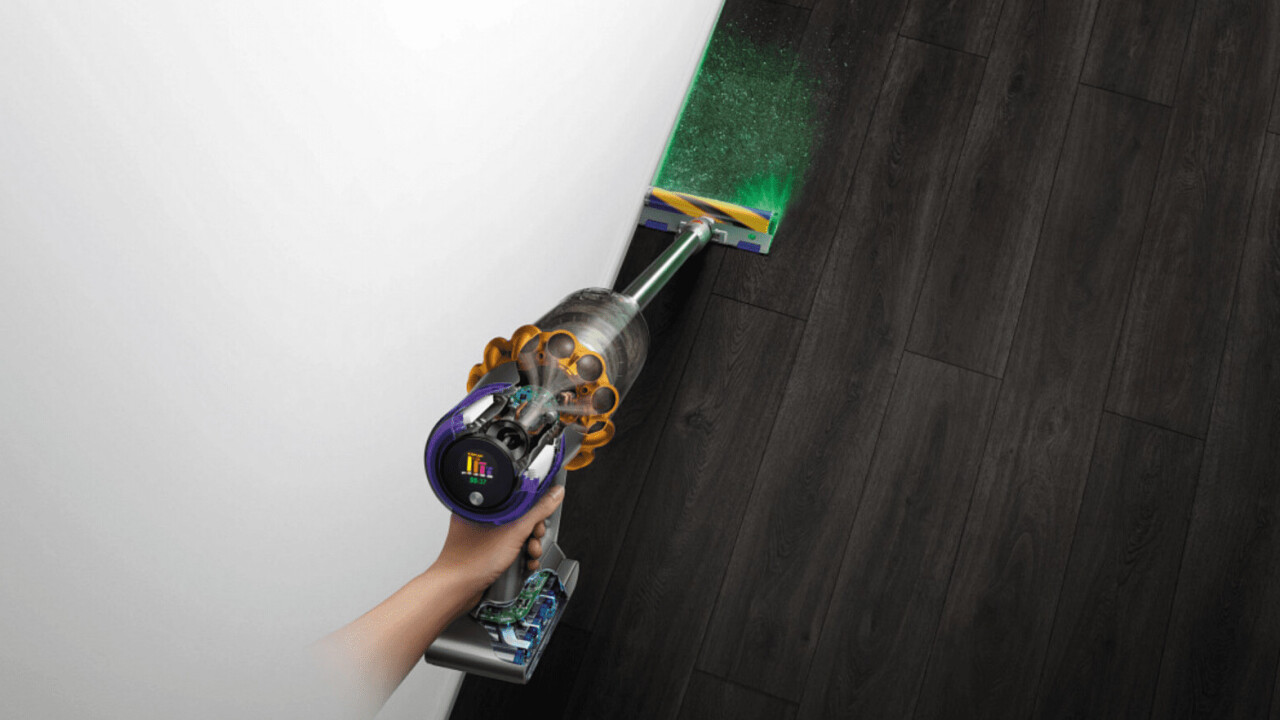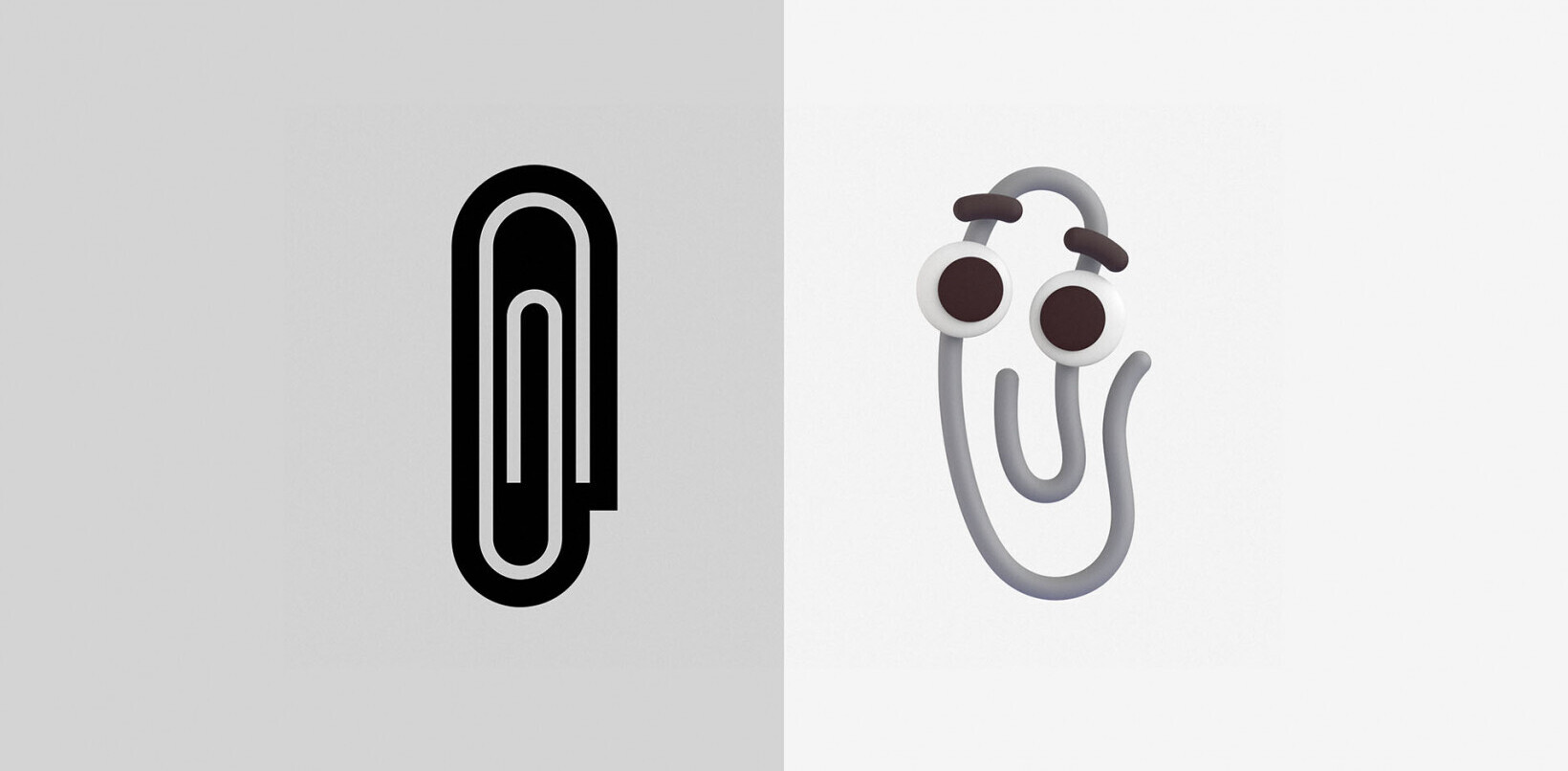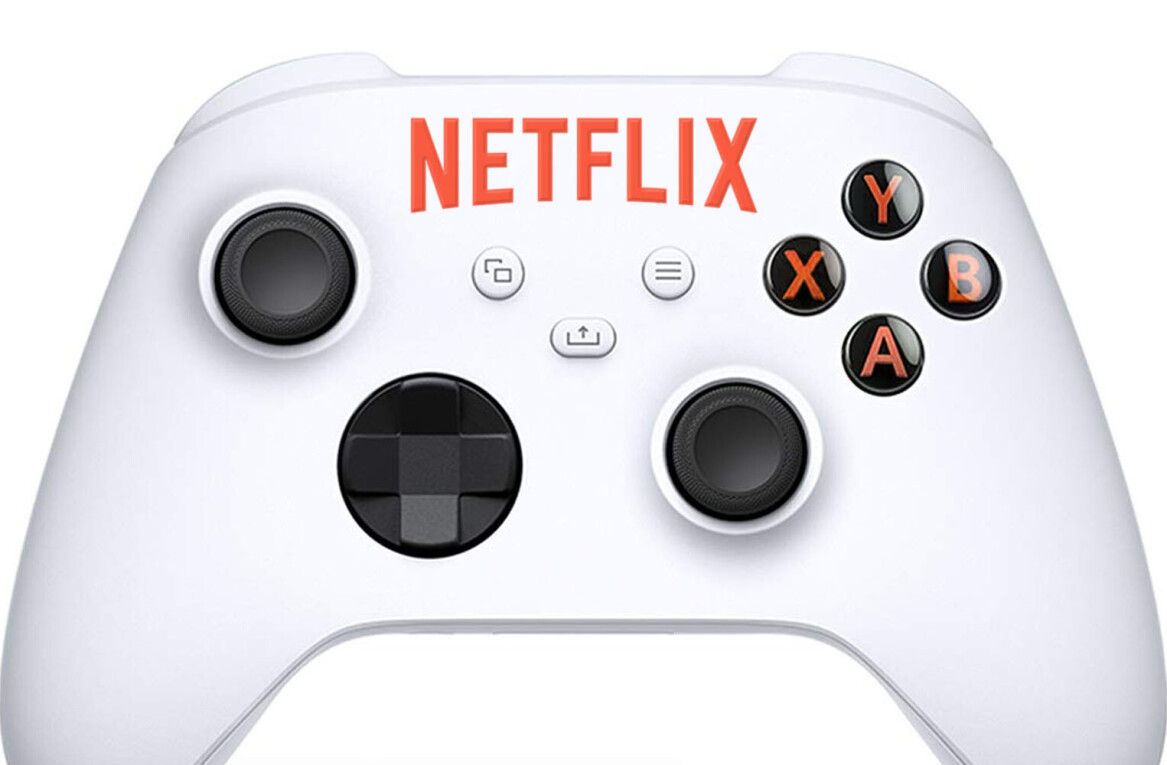
Another year, another new Dyson vacuum. 2021 brings some of the biggest changes we’ve seen in a long time though, which is why the company is jumping from the V11 all the way to V15. Most notably, the new V15 Detect packs a green laser to help you see just how grimy your floors are.
While plenty of vacuums already use LEDs to help you see dirt on your floor, Dyson is trying to one-up everyone by including a much cooler-sounding green laser instead (only available on the ‘Fluffy’ cleaner head meant for hard floors). The laser is precisely angled at 1.5 degrees and 7.2mm off the ground to make dust as visible as possible.
Why green, you ask? Dyson says it provides the best contrast. Which I guess makes sense; a white LED would be hard to see on a light-colored surface, but I’ve never seen anyone with bright green floors.
But it’s not only the light show that gives you a better idea of how clean your floors actually are. The vacuum also includes a new acoustic piezo sensor that actually tells you how much dust you’re picking up. This sensor also allows the vacuum to increase suction when it comes across a large amount of dust. Once levels stabilize, the vacuum’s suction will return to normal.
Dyson goes so far as to show a breakdown of the dust size and quantity on the vacuum’s LCD screen. That’s not something I ever thought I’d want to know, but it’s still pretty cool considering how accurate the sensor claims to be; Dyson says the sensor can detect particles as small as 10 microns — the size of some bacteria.

Aside from letting you know how grimy your floors are with scientific precision, Dyson claims its new vacuum accessories address probably the most annoying problem with vacuum cleaners all around: hair getting tangled in the brush bar.
For its new mini-motorized brush head — meant for cleaning furniture and the like — the company developed a new conical brush bar that is able to spiral hair and fur off into the dust bin rather than allowing it to get tangled and build up over time.
[Read more: ]
For its larger brush bar, Dyson is instead using essentially what amounts to a fancy hair comb to collect hair and prevent it from tangling around the brush bar.
But wait, there’s more! After introducing the supersized Dyson Outsize last year meant for giant American homes, Dyson today announced a smaller variant to its vacuum meant for smaller spaces called the Dyson Omni-glide.

This version differentiates itself from the other models in two key ways: It can lie flat to the ground to clean small nooks and crannies, and it comes with a cleaning head that can move in any-direction (hence the ‘Omni-glide’). That means that instead of the usual push-pull-turn of a typical vacuum, you can sweep in any direction to your heart’s content.
In order to lie flat, the Omni-glide has a slim chassis and gets rid of the vertical handle for a long bar instead. This allows the vacuum to get very low to the ground and easily slide under couches and the like; useful for a small apartment in which moving the couch isn’t an option.
Also, in another big change for Dyson, the vacuum uses a simple on-off power button instead of the usual press-and-hold trigger. The big caveat to all this is that the vacuum is only rated to last 20 minutes on a charge, it doesn’t come with brush head intended for rugs or carpets, and it doesn’t have any of the V15’s fancy new features. But it’s also a lot cheaper.
The Dyson V15 Detect and Omni-glide are available to order from Dyson.com beginning today. They’re priced at $700 and $400, respectively.
Get the TNW newsletter
Get the most important tech news in your inbox each week.




